Feed aggregator
Episode 543 - Cancel Time with Ajax
Fuzz, Savrin, and Ajax keep it light this week. Baldurs Gayte, discussions about social media, finding old stories, and the like. It's goofy.
Links
Telegram chat - https://t.me/+Ma4PTE0IsWVmMDQ5
Southpaws | creating and promoting The Queer Agenda | Patreon
Episode 543 - Cancel Time with AjaxBearly Furcasting S4E17 - Back At It
MOOBARKFLUFF! Click here to send us a comment or message about the show!
Moobarkfluff! With Taebyn at Denfur Bearly and Rayne chat about lots of things, we have a classic comedy routine, highlight upcoming events and tell some really bad jokes. This week is is a little shorter, so come spend some time with us, you will be glad you did. Moobarkfluff all you furs!
This podcast contains adult language and adult topics. It is rated M for Mature. Listener discretion is advised.
Thanks to all our listeners and to our staff: Bearly Normal, Rayne Raccoon, Taebyn, Cheetaro, TickTock, and Ziggy the Meme Weasel.
You can send us a message on Telegram at BFFT Chat, or via email at: bearlyfurcasting@gmail.com
What Doe, Ye Varlot!
Animation World Network recently ran an article about the upcoming slate of new animation headed to Cartoon Network this fall. Among them are new episodes of returning popular shows like Bugs Bunny Builders, Batwheels, and We Baby Bears. And one completely new show — at least to us: The Heroic Quest of the Valiant Prince Ivandoe. (Whew, long title!) ” The series tells the tale of Prince Ivandoe, a self-assured and delusional young buck, joined by his dedicated and clever squire, Bert, on a magical and hilarious hero’s quest, through kingdoms filled with swashbuckling, royal rivalries, and magical fairy tale creatures.” Prince Ivandoe will be arriving on Max this coming November.
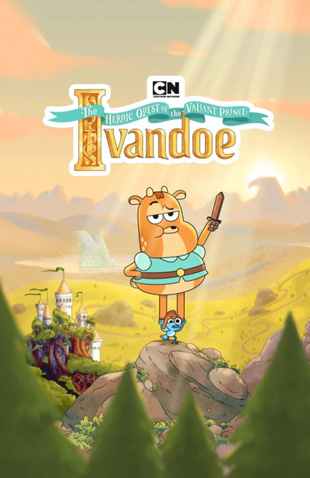
image c. 2023 Hanna-Barbera Studios Europe
Gamepopper releases book Furtannia: The History of the Furry Fandom in the United Kingdom
 Hello, I’m Gamepopper, a British furry author of the newly released book Furtannia: The History of the Furry Fandom in the United Kingdom. Buy it at the link from Uncle Bear Publishing.
Hello, I’m Gamepopper, a British furry author of the newly released book Furtannia: The History of the Furry Fandom in the United Kingdom. Buy it at the link from Uncle Bear Publishing.
I’ve mentioned this book on Dogpatch Press in a guest article calling for preserving the furry fandom’s history, when it was under the (admittingly cheeky) working title of Furry Kingdom. This book tells a long and multi-faceted account of that history, but this time from the perspective of British furries.
The origins of the modern furry phenomenon can be traced to America — specifically, California — and it eventually grew and spread to other countries. The United Kingdom was one of the first places outside the United States to embrace Furry, but it wasn’t just a new discovery; a lot of media that inspired the modern-day fandom originated in England.
Furtannia covers that growth from the first housecons and furmeets in the UK, to conventions like ConFuzzled, and how they differ from American furcons. Along the way it covers unique British Furry media and events.
That growth was influenced by California fandom reaching towards an international presence almost since the beginning. In 1987, Mark Merlino, Rod O’Riley, and a few American fans hosted a furry hotel party in Brighton during the 45th World Science Fiction Convention. A handful of British science fiction and comic book fans travelled to the United States or purchased imported American comics, discovered the fandom, and kept in touch with each other.
An American group-wide visit to a comics festival in France led to half a dozen furry fans meeting some of these British fans at a house in Yateley in 1992. The event led to a regular furry housecon. The British fandom grew to the point where they could produce fanzines and comics and host furmeets, and eventually, their conventions began in 2008 with ConFuzzled, the second largest furry con outside of North America with 2,661 attendees in May 2023.
Furries in the United Kingdom have been known in online spaces, from FurryMUCK to chat rooms, mailing lists, discussion boards and web forums, all before social media, not to mention all the creative talent the British scene offers in art, writing, music, fursuit creation, and even furry radio. Furtannia collects this all into one background they share.
My writing process
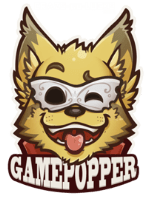
This book has been a passion project of mine since 2019, after having an overwhelmingly positive reception towards a talk I did at ConFuzzled on the subject. I took my current two years of research and expanded further. I talked to more furries, visited libraries and archives, and read too many articles, discussion threads, and webpages than any furry would want to admit.
While I was writing the book, I learned a lot of aspects about the fandom I wasn’t aware of back during ConFuzzled 2019, such as how the furry fandom functioned when the world wide web was yet to be mainstream, or the ways furry fans produced fanzines.
It’s also had the fortune of recording and preserving some parts of history that would have been completely lost had I not done so. In that guest article on Dogpatch Press, I talk about how Yahoo wiped away mailing lists (a popular method for local furry groups to socialise through) from their databases. I managed to recover and archive a few that aided in my research.
Meanwhile, near the end of 2019, I got to speak with Ian Curtis, the organiser of the furry houses and one of the founding fathers of the British furry fandom, at his home in Yateley. He helped give insight into how the furry housecons ran back in the early to mid-1990s and shared various comics he had in his vast collection. It would shock most when his friends posted in September 2021 that he had passed away.
I initially planned to cover events up until the end of 2019. When COVID-19 hit, the emergency lockdown rules forcefully cancelled conventions. I had to record what happened in the furry community.
Overall, I am proud of myself for working my way to this book’s release so that furries worldwide can learn and hopefully expand the ever-growing knowledge of our fandom’s history. There were some hiccups near the end, a few delays, and online storefronts taking issue with our launch. Still, Furtannia can be purchased directly on Uncle Bear Publishing’s website below.
https://www.unclebearpublishing.com/furtannia.html
The book is also available on Amazon (Kindle and Paperback), Barnes & Noble, Waterstones, and other online book retailers.
My copy of ‘Furtannia’, a history of the UK #furryfandom written by @gamepopper, has arrived!
(I spot @all_the_ears on the cover.)
Next on order will be ‘Furry Planet’, @JoeStrike‘s sequel to 2017’s ‘Furry Nation’. pic.twitter.com/3VOX7jqKAr
— Oliver (writer of ‘Komos & Goldie’) (@OliverGoldie1) August 6, 2023
Like the article? These take hard work. For more free furry news, follow on Twitter or support not-for-profit Dogpatch Press on Patreon.Want to get involved? Try these subreddits: r/furrydiscuss for news or r/waginheaven for the best of the community. Or send guest writing here. (Content Policy.)
TigerTails Radio Season 14 Episode 52

TigerTails Radio Season 14 Episode 52. Join the Discord Chat: https://discord.gg/SQ5QuRf For a full preview of events and for previous episodes, please visit http://www.tigertailsradio.co.uk. See website for full breakdown of song credits, which is usually updated shortly after the show. If you like what we do and wish to throw some pennies our way to support us, please consider sending a little tip our way. https://streamlabs.com/tigertailsradio/tip * Please note, tips are made to support TigerTails Radio and are assumed as made with good faith, so are therefore non-refundable. Thank you for your support and understanding.
Stella!!
Here’s a new graphic novel for young folks we came across in Previews: The Cosmic Adventures of Astrid and Stella. “Meet Astrid and Stella! These best friends are ready to fire up the turbo blasters and take off into the stratosphere! They’ll just need a few things before it’s time to go: their special space suits, lots and lots of snacks, and their trusty robot Bobo… In their very first adventure, Astrid and Stella will discover the cute and cuddly planet Caturn and the beach-covered planet Bloop. At each stop, they’ll meet new pals, solve friendship conundrums, and stop one evil tyrant—with lots of dance breaks and snack attacks along the way.” It’s available now in hardcover from Amulet books, written by Sabrina Moyle, with art by Eunice Moyle.
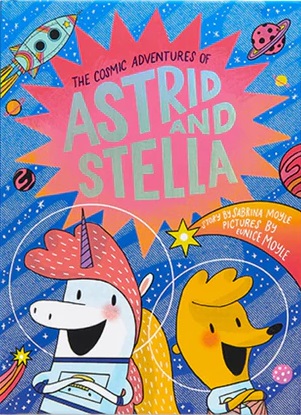
image c. 2023 Amulet Books
From Macau to Taiwan: A Peek into a Macau Furry’s Life [FABP E35]

Born and raised in Macau but now studying in Taiwan, MC the Wolf has many experiences living in different regions. MC is now studying psychology in Taiwan and has attended several fur cons in Taiwan. Let’s hear what she has to say about her life in Taiwan and how it compares to Macau! ---- Timestamps: 00:00 Teaser 00:26 Intro 01:06 Guest intro 03:33 Marcellus the Wolf 05:26 Bai Ling 07:00 A scarred fursona 08:22 Joining the furry fandom 11:19 Getting a fursuit from China 14:42 Saving up for a suit 18:15 Shipping from China to Macau 19:09 Fursuiting in Macau with your parents 22:22 Macau’s Chinese New Year parade 24:14 Fursuiting in Taiwan, love at first sight 26:37 Heterosexuality parade 28:45 Mistaken as Taiwanese 30:20 Dealing with depression, getting into art 32:28 Beastars and BNA 36:32 Kemono vs cartoony style 38:57 Macau’s New Face 43:15 Where to visit in Macau 44:51 What to eat in Macau 48:56 Growing up in Macau 53:16 Comparing Taiwan to Macau 58:01 Studying psychology, tackling depression 1:03:20 Staying in or leaving Taiwan 1:08:10 Social media shoutout 1:10:02 Outro ---- Social Media: Official FABP Twitter: https://twitter.com/foxandburger Michael: https://twitter.com/foxnakh https://www.youtube.com/channel/UCK9xoFQrxFTNPMjmXfUg2cg Burger: https://twitter.com/L1ghtningRunner Marcellus: https://linktr.ee/mcwolf0716 https://twitter.com/Mc_marcellus_ https://www.instagram.com/mc_marcellus_/ https://www.facebook.com/profile.php?id=100037429111211 ---- Footage Credit: https://www.vg247.com/apex-legends-25-million-2-million-players-concurrent https://www.fandomspot.com/anime-characters-with-scars/ https://animasiexpo.blogspot.com/2019/04/populer-eyepatch-anime-girl-gif.html https://piggotts.co.uk/products/flags/taiwan-national-flag-sewn/ http://www.vidiani.com/large-detailed-road-map-of-taiwan/ https://www.china-mike.com/china-travel-tips/tourist-maps/macau-map/ https://pandaily.com/alibaba-replaces-manager-of-second-hand-goods-platform-xianyu/ https://news.abs-cbn.com/business/06/29/18/jollibee-plans-to-open-stores-in-uk-malaysia-indonesia https://thecinemaholic.com/bna-brand-new-animal-season-2-netflix-release-date/ https://thenationroar.com/brand-new-animal-bna-episode-4-release-date-plot-spoilers-and-preview/ https://www.nme.com/en_au/features/gaming-features/jonah-scott-interview-bringing-dying-light-2s-aiden-caldwell-to-life-3151990 https://twitter.com/Mc_marcellus_/media https://www.youtube.com/watch?v=mE9iJnIaKSc https://www.youtube.com/watch?v=z2o1uGlCK90 https://www.youtube.com/shorts/ShA3jD60PpU https://www.youtube.com/watch?v=stKtX0dEL68 https://www.youtube.com/watch?v=lefSeLnhiXs https://www.youtube.com/watch?v=xGJ7pW8Tnrc https://www.youtube.com/watch?v=B2AWSAa31Ko https://www.youtube.com/watch?v=sidNKV4JXAA https://www.youtube.com/watch?v=-e45y8Hn_sY https://www.youtube.com/watch?v=Z2Zl64cSmpo https://www.youtube.com/watch?v=jD7VSFZ2rJg https://www.youtube.com/watch?v=6wD5LNeliEU https://www.youtube.com/watch?v=FZsHdxmbmPc https://www.youtube.com/watch?v=XQgU54KhG5s https://www.youtube.com/watch?v=Uw5e3IVXHHE https://www.youtube.com/watch?v=OwJPPaEyqhI https://www.youtube.com/watch?v=yLxubYfVyRY https://www.youtube.com/watch?v=9CwZCSOxWbA https://www.youtube.com/watch?v=_zrrFDbxx4U https://www.youtube.com/watch?v=mVCXd97OV98 https://www.youtube.com/watch?v=UsEntKPlNOQ https://www.youtube.com/watch?v=dLMiUvVPReA https://www.youtube.com/watch?v=APbzYIKsDjA https://www.youtube.com/watch?v=vucTYMqyA5k Other pictures and video provided by Pixabay, and guest’s and host’s personal footage. Intro/Outro Music: Drown Me Out - YVEN ---- The Fox and Burger Podcast is one segment of our production house, Fox and Burger Productions. The podcast’s goal is twofold: 1, to know more about the Asian furry fandom; and 2, compare and contrast the Asian fandom with the Western one. If you have a guest that you would like to see on the show, please PM us! We will also take questions for our guests, so don’t miss this opportunity to know some amazing furs.
Dust: An Elysian Tail Review by JoJo
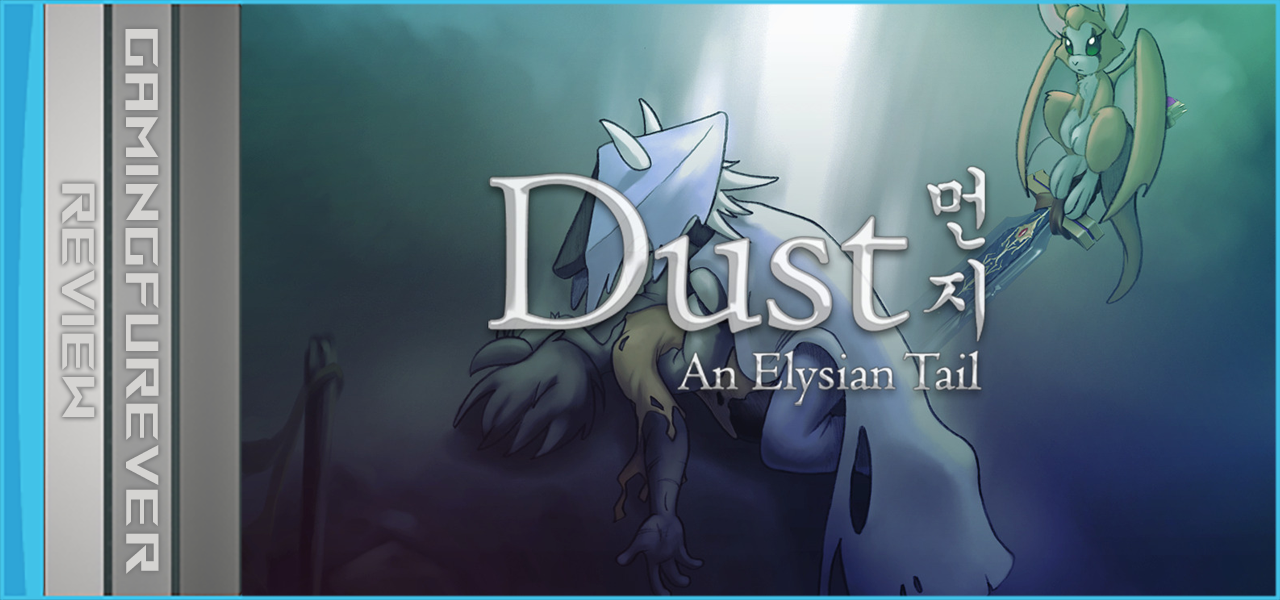
Back in 2009, a man by the name of Dead Dodrill submitted a game to Microsoft's Dream.Build.Play competition. The game won, and was awarded a contract for an Xbox Live Arcade release. Three years later, we finally get our paws on that game; Dust: An Elysian Tail. After spending a good amount of time with the game, I can without a doubt say it was worth the wait. Dust is not only dripping with anthropomorphic influence, it is a charming and enthralling action game that is sure to entertain, furry or not.
Sef's Interview with Ed Annunziata, Game Designer of Ecco the Dolphin
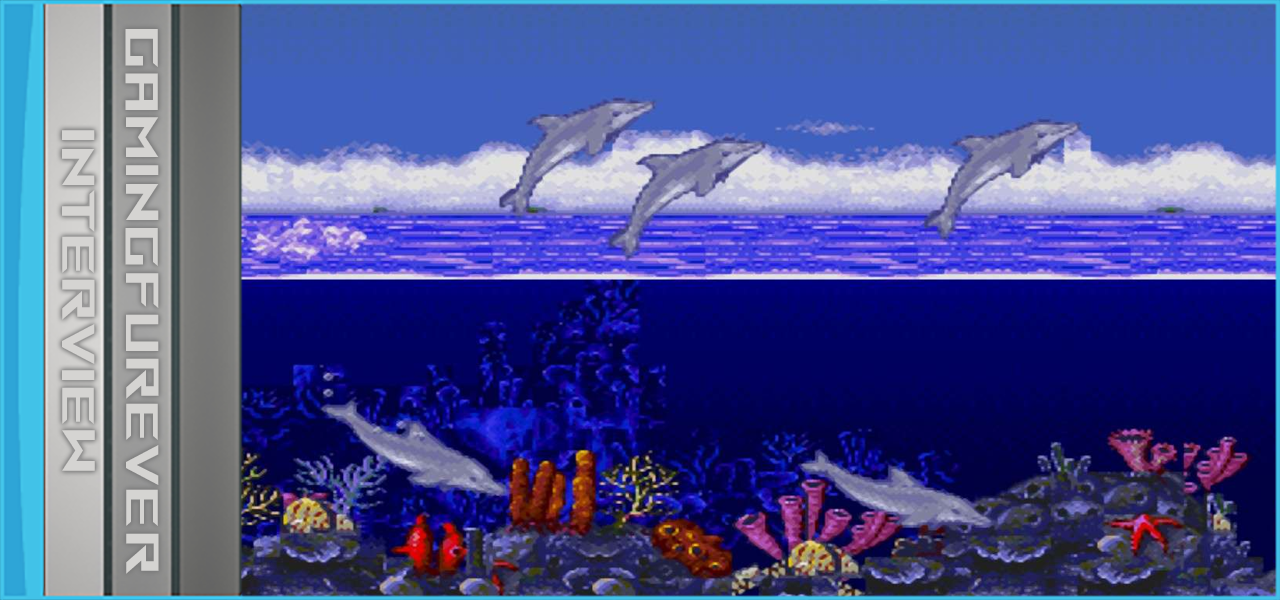
 In 1993 Genesis owners were given a surprising game that turned heads of Sega fans and critics. That game was Ecco The Dolphin. The game involved the player controlling Ecco as he transverses the ocean trying to locate clues to his missing pod. The game was beautiful and mesmerizing, and the game had a fantastic soundtrack as well. There was one thing that tripped up gamers was the unforgiving difficulty. However, although the game was hard, players continued to go back to the game. This series has a cult following, and to help commemorate the 20’th anniversary of the game I was able to get an interview with the game designer, Ed Annunziata!
In 1993 Genesis owners were given a surprising game that turned heads of Sega fans and critics. That game was Ecco The Dolphin. The game involved the player controlling Ecco as he transverses the ocean trying to locate clues to his missing pod. The game was beautiful and mesmerizing, and the game had a fantastic soundtrack as well. There was one thing that tripped up gamers was the unforgiving difficulty. However, although the game was hard, players continued to go back to the game. This series has a cult following, and to help commemorate the 20’th anniversary of the game I was able to get an interview with the game designer, Ed Annunziata!
Interview with Armello Director and League of Geeks Founder, Trent Kusters
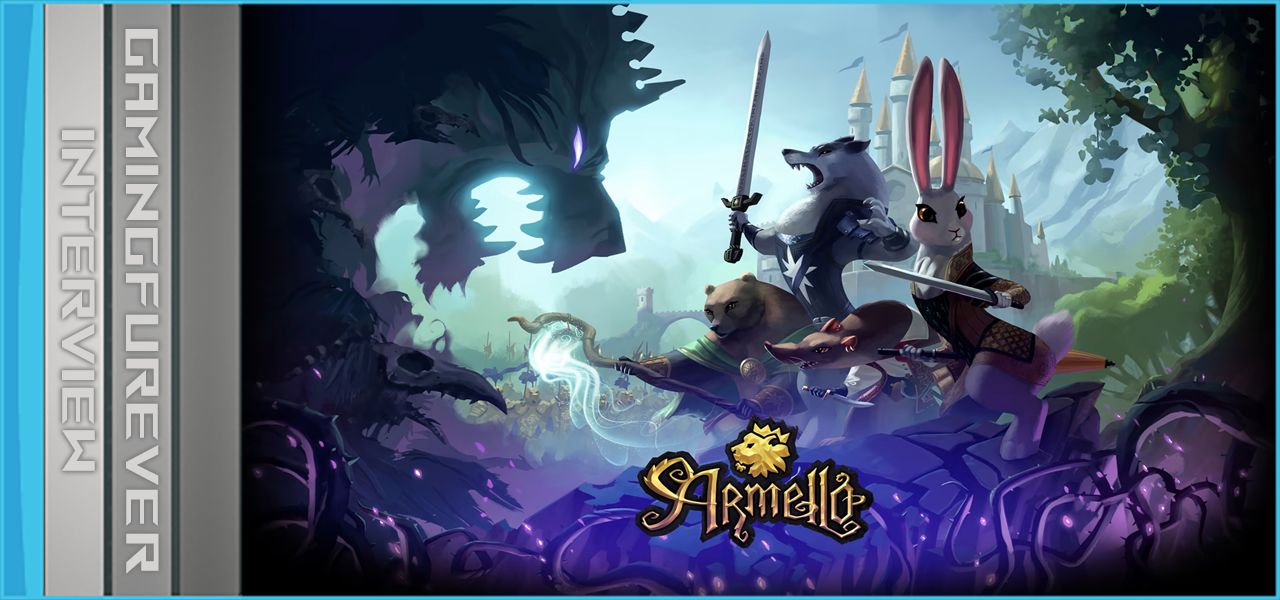
(Article originally published in 2013) We recently were able to grab an interview with Trent Custers, the Founder, Creative Director, and Game Designer of League of Geeks, a studio designing an upcoming indie title called "Armello", which features an anthropomorphic cast of characters. Check out what he had to say about the work so far on the game, and some special details about the story, characters, and furry influences.
Armello is a swashbuckling adventure that combines RPG elements with the strategic play of card and board games, creating a personal, story-fuelled experience.
You play as a 'Hero' from one of the four animal clans: Rat, Rabbit, Bear or Wolf. Players navigate their fully animated 3D character across the board (procedurally generated from 3D hex tiles) as they quest, scheme, explore, vanquish monsters, perform the Mad King's royal edicts, and face off against other players, with one ultimate end goal in mind—storming the palace and becoming King or Queen of Armello.
Armello is League of Geeks’ attempt to revolutionise digital board and card games, whilst providing players a rich world within which they can craft their very own stories of epic adventure.
Sine Mora Review by Daxel
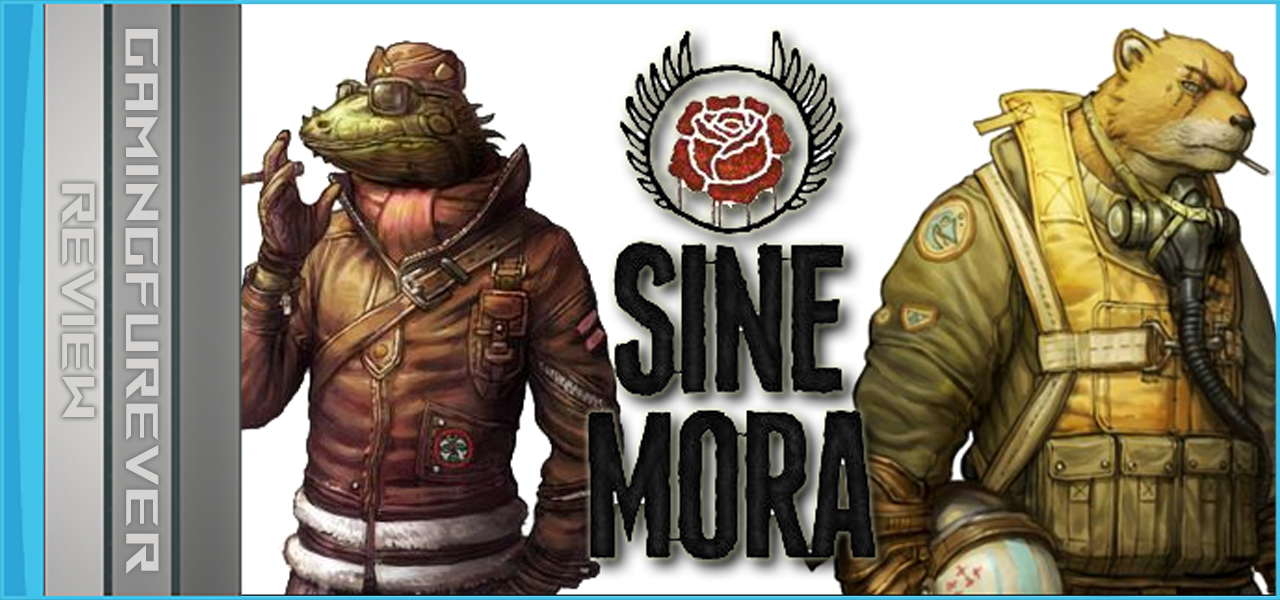
Shoot 'em ups, or shmups, for short, are one of my favorite classic styles of gaming. The only problem is that recently, they have been of the 'impossible' type. I'll download a demo, play for a few seconds, and explode. Now, I know there's a ton of people that love that difficulty. It's why the play the game. For those of us who don't have the reflexes of a friggin squirrel, I really appreciate it when game makers make modes for the rest of us. This is what Sine Mora does. It manages to create a nice hill to climb as far as being able to enjoy the game and get better, upping the difficulty at your own pace.
(un)Lucky7 Interview with Blaze Sanecki
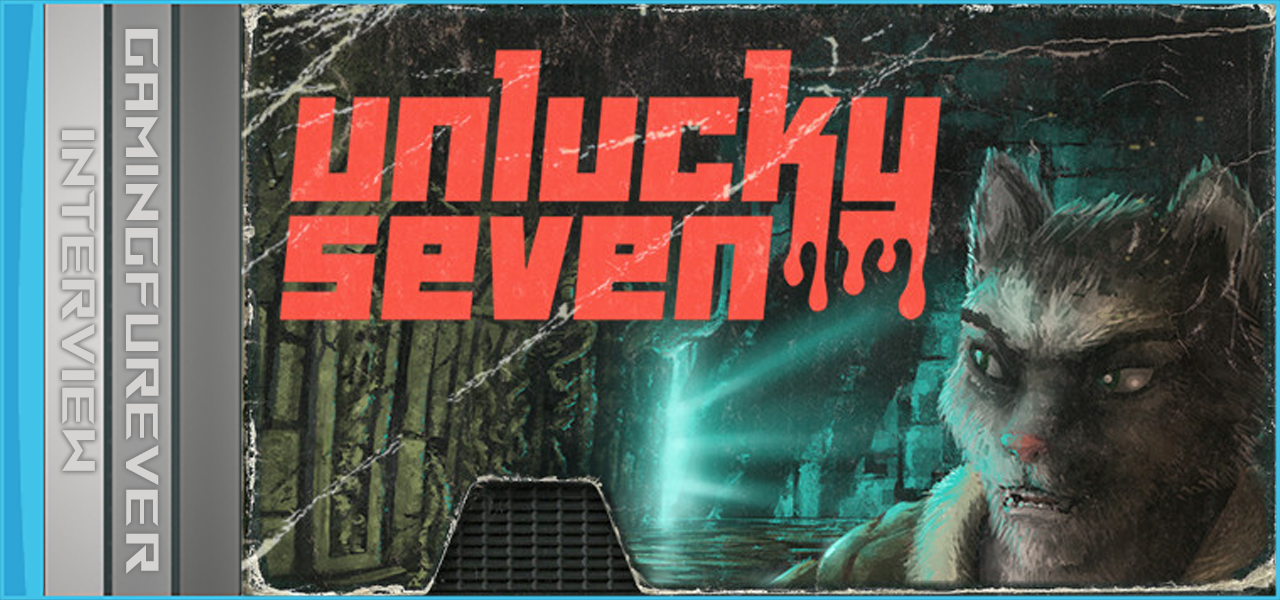
Recently, I pointed our viewers to an in-production game titled (un)Lucky7. The game is a "horror, sci-fi themed, jRPG-view, story-driven, pixelart puzzle game" that is now running active campaigns on IndieGoGo and Steam Greenlight.
Blaze Sanecki, one of the men behind the Indie game studio Asylum Creatures, who is creating the game, gratefully answered a few questions we had about the upcoming furry-themed title.
JoJo Reviews Bioshock Infinite
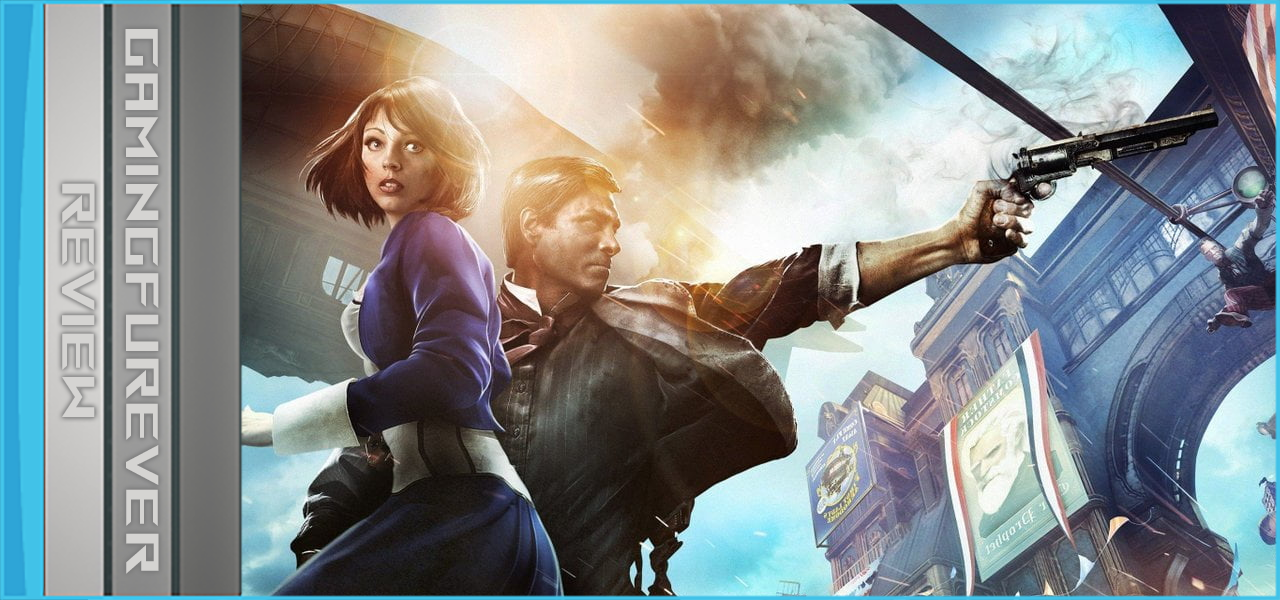
It's been a while since I've written a review, but after playing Bioshock Infinite, I was inspired to get back into the spirit. Also, I want to assure you that this review will hold back from revealing any spoilers, so no worries.
Infinite is the third game in the series, but escapes the confines of Rapture and takes flight in the floating city of Columbia. You play the part of Booker DeWitt, who has been mysteriously transported to this seemingly perfect oasis of civilization in search of a girl. However, things are not always as they seem...
I've played through the first two Bioshock games. The first one was revolutionary, and the world of Rapture pulled me in hook, line, and sinker. Bioshock 2, to me, was more of the gameplay-focused title many games become, but finished with a strong second act. To be honest, I was tempted to dislike the new setting in Infinite because I had fallen so in love with Rapture. I managed to hold back the pessimism though, and went into the world of Columbia with an open mind, hoping that Irrational Games would deliver again. Not to spoil anything, but they definitely did.
Developer Interview With John Warren, Founder of Minicore Studios, The Sun At Night

(Originally posted in 2013) Acharky got a chance to sit down with CEO and Founder of Minicore Studios John E. Warren. Minicore is currently working on Laika Believes: The Sun at Night the first installment of a three part series of 2D action games being made for PC, Linux, and Mac OS.
Furry beach-off: The truth about a fight with a megaphone at a California meet

Event background video Sunset Beach Bonfire: Raccoon’s Den Episode 112
Blood was drawn by violence between furries in California’s Huntington Beach, in a story that’s raising hype and misinformation. The hot-button term “nazi” is part of it. So is years of peaceful history for hundreds of members, even when a fight between a few of them is like red meat for media vultures who don’t care about the background. Here’s a story with witness evidence for readers who care.
The setting was the 11th annual Sunset Beach Bonfire meet on August 12, 2023. This event in Southern California is so popular, the attendance rivals entire furry conventions. Members of their nearly 1000-strong chat group go for grilling and fursuiting with so many friends, they need a megaphone for crowd control, like to organize group photos. This is a party for people who are full of love and fun who have been very successful at growing it.
In March, the official update channel announced they had reserved space: “It’s a private location with a volleyball playground.” Remember it was private access. Tents and a fursuit lounge were provided to keep cool in the sun. Nobody expected the chill vibes to heat up with a megaphone being used for a weapon, a scuffle on the ground, and an arrest with charges still to get decided in court.
Me trying to see that one dude who beat the shit out of some guy with a megaphone. #Furry #MoreFurLessMonday https://t.co/f7fX34OBM2
— Opos Furvana (@Real_Opos) August 15, 2023
Furvana (@Real_Opos) August 15, 2023
A short video clip of the fight went viral, with context twisted by the hype. It started with accounts for fight videos, then went to sensational tabloid and right-wing “news” sources with trashy reputations:
- Man Attacked By Furry At Huntington Beach Meetup, Wild Video Shows – TMZ
- Furry Fight: Chaos Erupts At California Beach ‘Furmeet’ As Pirate Furry Drills ‘Chud’ With Megaphone – Outkick
- Bizarre moment man is attacked by FURRY after he’s caught filming fetish group in Huntington Beach – Daily Mail
- Pirate furry tackled by cops for attacking man with megaphone at ‘Furmeet’ – Dexerto
- Furious furries fight back after busting man filming them on beach – NY Post
- Man filming fetish group attacked by furries on beach – Toronto Sun
- Furry Attacks Man at Huntington Beach – Total Frat Move
- VIDEO: Furries Attack Man At Beach – Barstool Sports
Those are archive links to deny traffic for stories of conjecture and regurgitated, third-hand info. They don’t care about accuracy because they have agendas. It’s implied that there was an “attack” on a random man for simply recording the group (but in fact, there were years of provocation by inside members causing a problem). Some of them wedge in malicious bias by mocking pronouns, using “fetish” innuendo, and for no sane reason, comparing furries to “street thugs” who do retail looting. There have even been bewares in furry groups about right-wing news trying to get inside. To help debunk the fake news, Dogpatch Press can provide direct info with cooperation from people involved.

Fake news from “Longtime InfoWars host and conspiracy theorist David Knight”
Years of provocation – and why the Nazi term comes up
Apart from tabloid stories to blame the community, members tended to consider this to be community defense like a history of opposing neo-nazi infiltration in subcultures, from punks to furries. Were Nazi furries involved?
Quick points about the beach event:
- The location was private and reserved, not public, and access could be denied.
- Two people were banned from attending: Skaard and his boyfriend Renn (person hit with a megaphone).
- Skaard is known for being in the neo-nazi Furry Raiders and doing the type of harassment the group is known for.
- Dogpatch Press staff have been harassed by Skaard for reporting about neo-nazis, earning him a permanent block.
- Skaard’s behavior went on for over six years and caused prior bans from furry groups and events, and they applied to enablers too.
- Skaard and his partner knew they were banned from the beach meet, and picked the fight by going anyways.
Proof of years of provocation:
- 58 screenshots of group chats showing Skaard (AKA Valyrym) and Renn’s bans from groups and events.
- Skaard’s participation in neo-nazi activity, which he denies with common excuses spread by those groups.
- Thread of evidence and discussion.



A witness statement and the aftermath
A source from the Sunset Beach Bonfire event explained the fight (identity withheld for security.)
“There were two people involved, Skaard (Nazi) and Renn (boyfriend to Nazi). Renn was the one who got bonked.
They were told previously that the two of them weren’t allowed to attend this meet; they ignored warnings on purpose. They were also escorted off premises at a similar meetup a week prior by law enforcement during the FurBQ. They have been banned from numerous southern Californian furry events because of death threats and harassment campaigns to the members, most of which were done verbally with no recordings, along with affiliation with the Furry Raiders, a known Neo Nazi Furry group.
We had a reserved area on the beach, and the staff of the event organizers were allowed limited control of who was or wasn’t allowed there. During the beginning of the confrontation, these people were told that they were allowed to go anywhere else on the beach other than our area which we had a reserved permit for. We also didn’t want them interacting with our suit lounge, which was part of the permit.
This was incident #3, and the other 2 incidents had been handled without further trouble. Law enforcement told us earlier in the day when the first incident occurred that they either wouldn’t help us, or couldn’t be able to help us.
Renn, who was recording the entire event the moment he walked onto the beach, after being talked to for over 5 minutes that they were not welcome, that they needed to leave, and that the person who owns the permit didn’t want them there, he basically said “Too bad, I’m not leaving.”
It’s regrettable that it came to violence, but there shouldn’t be regret about who it happened to. There was an attempt to just be loud at them using the megaphone to annoy them into leaving first. After Renn was hit, the alleged hitter was then tackled to the ground and pinned by a non-furry bystander. He didn’t resist being detained.”
The alleged hitter was arrested and booked at the county jail, then released after arraignment. The charge was Felony Assault with a Deadly Weapon, but it was reduced to a misdemeanor. The court ordered no contact by the accused with Skaard or Renn. A next court date is in September for the process of going to trial.
Editor’s opinion
This isn’t a story of furries confronting nazis using nazi symbols and trying to do hate crime at the event. It was inside conflict with people who refused to take “no” after bans. They happened to be a past nazi-sympathizer and enabler who wanted control to undermine healthy gatekeeping. It was up to the community to handle their intrusion after police wouldn’t. That’s about behavior more than politics, but can still count as community defense. If people want to cheer for punching nazis, it’s smart to consider the cost and try to avoid giving them what they want.
UPDATE:
As the owner of these stolen photographs, I have contacted Daily Mail about their licensing violation, negotiated a settlement, and am proud to announce that I will be using that money to buy my next fursuit. https://t.co/SaA0bEp1Wg
— Scotty (@ScottyWuff) August 17, 2023
UPDATE 2:
An attempted debunking was made to show an alternative truth to the experiences of a community who put up with 6 years of bad actors pushing in. It’s a longwinded journey that starts with a pre-made conclusion – forget how Skaard called himself a “nazifur”, these aren’t “nazis”, so calling them nazis must be the real problem. This sets up the end goal of whataboutism at fed-up people.
Along the way it elevates the bad actors by swerving through excuses, speculation, and dubious assertions. It couldn’t have kept a straight story anyways, because most of the community refused to talk for it. (“The SoCal furries have included me in their media blackout order, so I’ve only been able to pick up that side of things by secondhand reports”, the author wrote to me.) It doesn’t disclose that reason for partial results… and they were right to be suspicious, when the whole thing was made to confuse cause and effect in the 6 year pattern with the common denominators Skaard and his enabler Renn.
6 reasons to skip it
1) Unreliable source. The author was previously most known by furries for doing a hoax that inflamed hate against furries from right-wing smear accounts. It was excused with justifications that you can entertain if you want to indulge everything else wrong here. The site host is also known for apologism about transphobia and overindulging obvious bad actors.
2) Bad faith. When bad actors push for 6 years, is it a surprise if someone pushes back? Or is the surprise that it took that long? Handwringing about reactions sets all that aside. Then it goes back to say Skaard’s original offense was just “asking for rides.” That’s an obvious bad-faith reduction of disrespect, meltdowns, and threats that went along with it. The whole thing copes and swerves around such inconveniences, making a checkerboard of omissions to defend the two common denominators. They are absolved for problem after problem that got them dismissed from group after group over 6 years. Their feud with Golden State Fur Con is not even mentioned, where Renn got them dropped from staff for bad behavior, then attacked the con with bad faith claims that it was “stolen” from them! (The firing had nothing to do with calling them “nazis.”) This distorted defense goes up to dismissing a BBQ incident that got police/rangers involved, because if police wouldn’t help, it must not matter. If someone threatens you, how many chances do you give them, anyways? Zero is all you owe, period. You don’t owe justifying your “No”. But the piece presumptuously declares, “there is no justification for treating someone as irredeemable based on their beliefs alone” — uh, bullshit. That’s not for us to decide for fed-up people, especially while minimizing threats.
3) Poor excuses. It all stands on one very unbelievable excuse. It’s fine to point out a confusing look of “not-nazis” acting leftish, but not while excusing the “not-nazi” for displaying swastikas… because… he was only 20. That’s not a child. Then we’re supposed to trust that the “not-nazi” who ranted against SJW’s for making him remove a swastika was just being an ironic edgelord but somehow also an innocent “socialist” member of furry nazis to “spy” on them. A claim with zero evidence of spying. Real spies don’t use main accounts, and guess what? There were real spies, they were organized, they knew each other, and this person wasn’t one. I know because I was there. We’re supposed to memory-hole how a not-nazi got pissed off about removing swastikas, because of posting leftish memes somewhere else. I would love to hear the math behind this: does a Bernie Sanders meme neutralize 2 swastikas and an n-bomb? Keep in mind that virtue-signalling isn’t actually incongruent as claimed, and being a 9/11 conspiracy truther helps to show how little you can trust these people for anything at all.

What a liar looks like
4) Platforming liars. To bolster the spy excuse it quotes Foxler, a person known for running the organized-crime-like Furry Raiders, claiming to be into bestiality, and child sex offending. Gosh if you ask a creep like that for the truth what do you think will happen? In another section it presents lying about me from someone going by “HeWhoRoarks” (about a story I didn’t write.) The results of this were…
5) Bad assertions. The piece claims complete truth based on half-assed, impossible to confirm information. Searching a Furry Raiders Telegram group for messages from the “spy” didn’t find any, so they say, (let’s be charitable about how many accounts they go through there.) But Furry Raiders were also on Discord during Skaard’s membership. A gamer would be on Discord and so would a spy, when the worst activity was there. It was so bad that Discord repeatedly banned and deleted their groups along with a wider sweep. This wasn’t even considered for the narrative, and the excuse about learning this later was special pleading about not getting Discord records after not asking for them. While hypocritically failing to show evidence of “spying”. Which takes this back to #3.
6) Bad priorities. The big reason to skip it is how the whole thing treats nazi threats as overblown and just about personal spats. When cons have been canceled because of them, and they have terrorist organizers and mass shooters, don’t waste your time looking for the list of leftists who do any of that. But the priority is to excuse a 6 year pattern from bad actors who picked a fight, in order to do whataboutism at a threatened community. Based on the effort already expended you won’t see anything better from that source than lip service about the big picture. They just don’t care about all this evidence, because when you break down all the feigned bad-faith “reasonable” “centrism” as I’ve just done, what you’re left with is the ugly dishonesty at their hearts. It wasn’t journalism – it was counterprogramming made to manipulate people and get them complacent about bad actors, including the ones doing the apologism. If you ever see them come posing as reliable media again – beware!

Admitting being among “Aushwitz RP” and mass bans, but not being liable, trust me bro… Claiming naivety at age 20? K 
I don't know what I expected from the Blocked And Reported podcast by Jesse Singal and Katie Herzog, but, ya know, really digging the bait and switch here.
"I'm just seeing no evidence of anyone involved being a Nazi! How absurd!"
"oh well I mean other than the Nazi stuff" https://t.co/8rzofbQiE3 pic.twitter.com/mMrOSElLAh
— Michael Paulauski (@mike10010100) September 8, 2023
He created his fursona as a Nazi
He repeatedly hung out online as that fursona
When others noticed that fursona was a Nazi, he called them "SJWs"
When others chose not to associate with him, he showed up, in person, to "settle things"
Come the fuck onhttps://t.co/P7BdNlPR8N
— Michael Paulauski (@mike10010100) September 8, 2023
(Also, showing up to an event where the organizers have said you’re not welcome is creepy stalker behavior in and of itself and frankly one of the few times I’d get the cops involved, though I understand why people might not, ACAB and all.)
— Isabel Cooper (@ICooperAuthor) September 8, 2023
UPDATE 3:
A rant was sent in by Skaard where he admits offenses but wants to justify them. With that horse long since beaten dead, there’s no point in airing argumentative manipulation. Let’s just summarize it:
- Denies being a nazi sympathizer, with zero accountability for labeling himself “nazifur” for all to see
- Blames a 16 year old for giving him swastika art, with zero accountability for attacking people who found it offensive
- Says he was never involved with Furry Raiders, while blaming the founder of Golden State Fur Con for getting him involved
- Instead of owning Renn’s bad behavior that got them let go from GSFC staff, doubles down on attacking the founder
- Admits harassing Dogpatch Press before this story with zero provocation, doubles down on attacking without apology
- Pity tripping about being immature and reactive, still with no apology to anyone except feeling sorry for himself
- “Whatabout” attacks at a long list of enemies, where he is the only common denominator
- Rules-lawyering about boundaries, like the “I’m not touching you” game to justify flouting them for years
A strong definition of Creep isn’t just someone who crosses a boundary, but manipulates offenses to be everyone else’s fault while persisting with it. That isn’t going to interfere with the truth here.
Like the article? These take hard work. For more free furry news, follow on Twitter or support not-for-profit Dogpatch Press on Patreon.Want to get involved? Try these subreddits: r/furrydiscuss for news or r/waginheaven for the best of the community. Or send guest writing here. (Content Policy.)
First They Look Like You…
For a while now Archaia Comics have been bringing us new series based on Jim Henson’s 1980’s TV series The Storyteller, staring John Hurt and Brian Henson. The latest addition is The Storyteller: Shapeshifters mini-series. And now, Archaia have collected all four issues together in a single hardcover omnibus. Sure enough, the stories feature everything from kids turned into swans to tricky fox-people. “Locus Award-winning writer Darcie Little Badger (A Snake Falls to Earth, Marvel’s Voices: Indigenous Voices #1), and esteemed writers Andre R. Frattino (Simon Says: Nazi Hunter) and Deron Bennett, along with up-and-coming artists Nori Retherford, Alexandra Fastovets, Dani Pendergast, and celebrated cartoonist Emilia Cilento (INGOVY) bring together a timeless collection of tales about shapeshifters from around the world.” Jim Henson’s The Storyteller: Shapeshifters is available from Simon & Schuster.
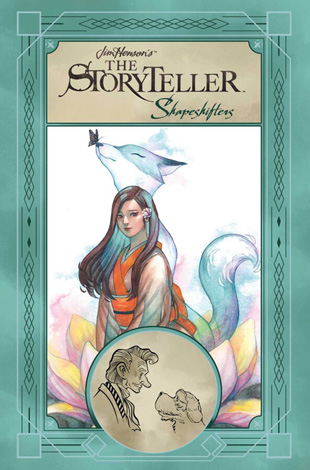
image c. 2023 Archaia
TigerTails Radio Season 14 Episode 51

TigerTails Radio Season 14 Episode 51. Join the Discord Chat: https://discord.gg/SQ5QuRf For a full preview of events and for previous episodes, please visit http://www.tigertailsradio.co.uk. See website for full breakdown of song credits, which is usually updated shortly after the show. If you like what we do and wish to throw some pennies our way to support us, please consider sending a little tip our way. https://streamlabs.com/tigertailsradio/tip * Please note, tips are made to support TigerTails Radio and are assumed as made with good faith, so are therefore non-refundable. Thank you for your support and understanding.
Issue 18

Welcome to Issue 18 of Zooscape!
Sometimes it’s easier to stare danger in the face, unflinching, if you tell yourself the darkness wears fur and paws; or maybe hooves, horns, fins, or feathery wings.
Visit the nightmares and apocalypses in these stories, and come out the other side stronger for having faced humanity’s collective fears… and possibly even made friends with them.
* * *
Susurrus by Azure Arther
How Pepper Learned Magic by Renee Carter Hall
A Strange and Terrible Wonder by Katie McIvor
What Dark Plutonian Horror Beckons from the Shadows? by Christopher Blake
The Four Sharks of the Apocalypse by Tessa Yang
What Little Remains by Mercy Morbid
Hope for the Harbingers by Allison Thai
* * *
Now for a couple of announcements…
First, unlike some other speculative fiction markets, Zooscape will not be instituting any sort of policy banning AI or asking writers to disclose whether they used AI in writing their stories. We don’t discriminate against writers based on what tools they use. If an author can sign our contract, then it’s no business of ours how they wrote their story.
Secondly — and this one is exciting! — we are finally going to begin releasing anthologies bundling our previous issues into volumes. We’ve partnered with the new small publisher, Deep Sky Anchor Press, and the first volume will be released on September 8th at Furvana. You can learn more from their press announcement here.
And as always, if you want to support Zooscape, check out our Patreon.

